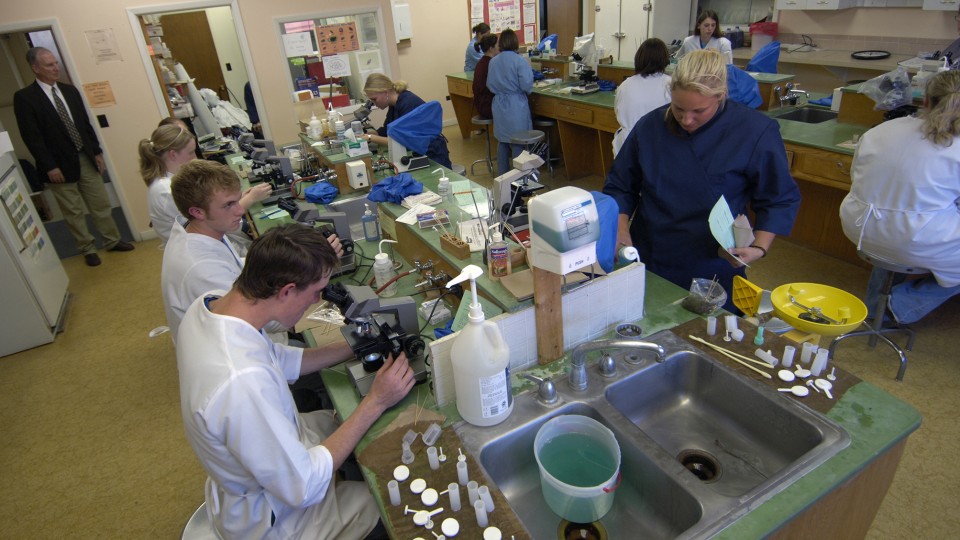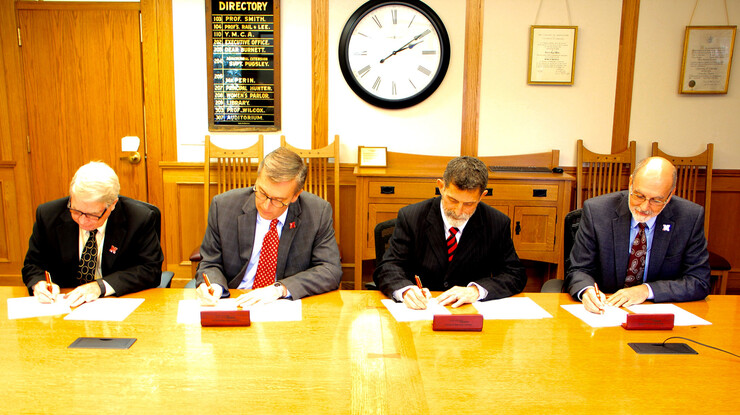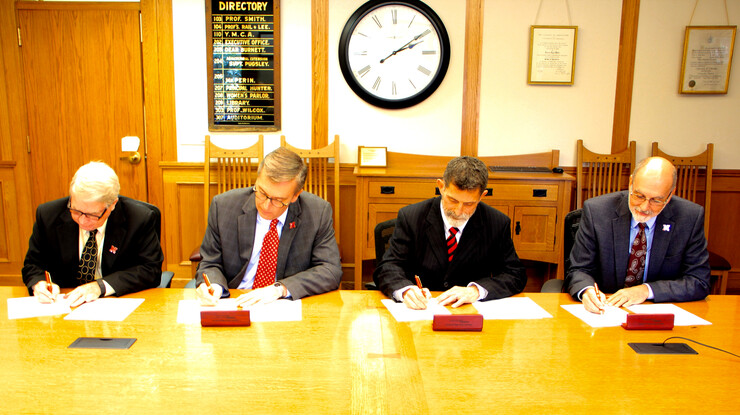· 3 min read
UNL agriculture college, NCTA sign transfer agreement

A new agreement will allow students who complete a specific curriculum track at the Nebraska College of Technical Agriculture to transfer to UNL and earn a bachelor’s degree from the College of Agricultural Sciences and Natural Resources.
The “2+2” agreement, which was signed March 18, allows technical agriculture students to complete two years of study at the campus in Curtis before transferring to complete degree requirements at UNL.
“We have had a very long and productive history with NCTA that has evolved over time to one of the most innovative partnerships between a two-year and four-year institution,” said Steven Waller, dean of the College of Agricultural Sciences and Natural Resources. “The result of these partnerships is expanded access and opportunities for students in the state interested in careers in agriculture.”
Evey Choat, a junior agricultural education major from St. Edward, completed her first two years of education at NCTA before transferring to UNL last fall. Everyone at both institutions made the transfer process easy, Choat said.
“The transfer option provided me a great opportunity to be able to complete my four-year degree in the state of Nebraska,” she said.
NCTA is focused on tangible learning activities and hands-on education relevant to modern agricultural careers. NCTA was recently named a top 50 two-year institution by the Aspen College Excellence Program. For more information about NCTA, click here.
CASNR’s goal is to prepare students as leaders for a future in which demands on food, energy and water systems will challenge sustainability. The areas of study span animal, plant and human health and well-being; earth systems analysis; agricultural production and processing; global climate change; agricultural market structures; water resources; and land-use change. The college also coordinates all agricultural sciences and natural resources programs in higher education in the state. For more information about CASNR, click here.









